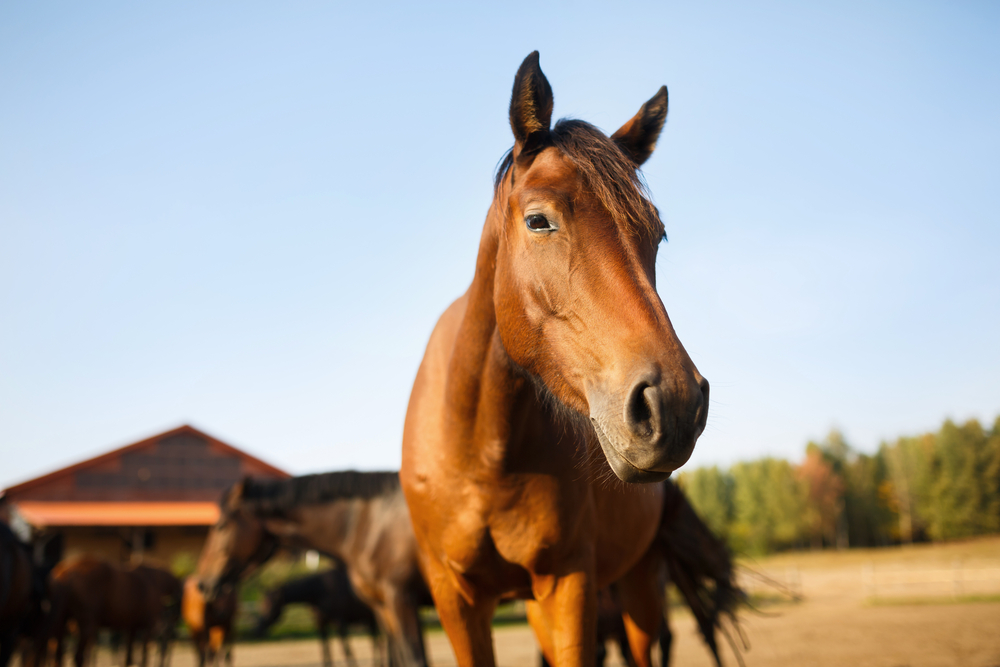Summer care for your horses
Many horses find hot weather uncomfortable, but with the help of PH Winterton, we can keep them cool and reduce the risk of dehydration and colic.
We are the leading provider of equine bedding and constantly talk to our customers, offering advice about caring for their horses all year round.
Hydration is vital
A constant supply of clean and fresh water is essential to prevent dehydration. The average horse drinks up to 50 litres of water each day in hot weather. Remember that buckets of water in the stable cab get warm and unpalatable if it’s left too long, so you may need to change it regularly.
Water also has a key role in your horse’s digestive system, and if they do not get sufficient water it can increase the risk of colic. Water is continually secreted into and reabsorbed from the gut during the digestive process. Changes in hydration will affect this process and how food passes along the gut, increasing the risk of issues such as impaction colic. If the drinking supply is from a silty natural water source this could also lead to sand colic.
How to increase water intake
We would recommend having more than one water source available in the field to ensure certain herd members are not prevented or chased away from drinking by others. Keeping water sources away from a corner helps to prevent a horse from being corned into a small area by other horses.
You can also soak or steam your horse’s hay to increase their water intake. Steaming hay for 90 minutes increases water content by up to three times, just remember to introduce soaked/steamed hay into their diet gradually to reduce the risk of colic.
Feed the hay as soon as possible after soaking/steaming and dispose of any left behind. Remember to avoid soaking hay in direct sunlight and for long periods during warm weather as this encourages bacteria growth. Our current recommendation is to soak hay for around an hour in warm weather.
Travelling advice
If possible, avoid travelling your horse in hot weather and try to travel as early or late as possible to avoid the hottest part of the day and make sure you take extra water with you. Some horses can be fussy about drinking water away from home, so perhaps keep a familiar supply to hand.
Carrying plenty of water is a vital part of the preparation in case your vehicle breaks down. If you are stuck at the side of the road awaiting recovery, water will help keep your horse cool and hydrated.
Shelter in hot weather
Shelter or shade is preferable for horses in hot weather. Having a field shelter provides the best protection from the sun plus trees and hedges can provide sufficient shade.
Stabling horses during the hottest parts of the day, whilst ensuring the stable is cool is another option.
Watch out for flies
If you can keep your horse in during the day and out at night it will reduce their exposure to flies. Fly sheets and masks can help as the saliva from the bite of Culicoides midges and black flies can cause an allergic reaction known as Sweet Itch. This causes intense scratching with some horses rubbing themselves raw.
There are plenty of fly repellent sprays and insecticides available with some more effective than others. The products should be applied with care and should not be applied to inflamed or broken skin.
Removing droppings regularly from the paddock and stable avoids attracting flies and position the muck heap away from where the horse is kept, if possible.
Protection Against the Sun
Sun cream is not just for humans, horses with pink skin and grey or white hair are most susceptible to burning. This means sun protection is highly recommended, especially on pink noses.
When to exercise your horse
PH Winterton would recommend going to exercise with your horse either early in the morning or late evening when it is cooler. When exercising in hot weather, take more breaks as your horse can’t be expected to do as much in this weather as other times if they are not acclimatised to longer periods of heat. It takes between 2 and 3 weeks of regular daily exercise in hot weather for horses to acclimatise. Also, be mindful of your horse’s weight, as overweight horses will struggle more in hot weather.
Allow your horse to drink immediately following exercise won’t increase the risk of colic and is encouraged.
If your horse has a thick coat then you could need a clip to prevent them from becoming too uncomfortable.
Remember to wear a hi-viz if you are riding out. Even in bright sunshine, patches of shade could make it difficult for drivers to spot horses on the road.
Cooling down your horse
After you have finished riding, ensuring you cool a hot horse down, which can be achieved by continuously pouring cold water all over its body. Not scraping the water off the horses will not cause the skin temperature to rise.
Got any questions? Contact us now
If you have any questions about looking after your horse during the summer sunshine, please do not hesitate to get in touch with PH Winterton now.

